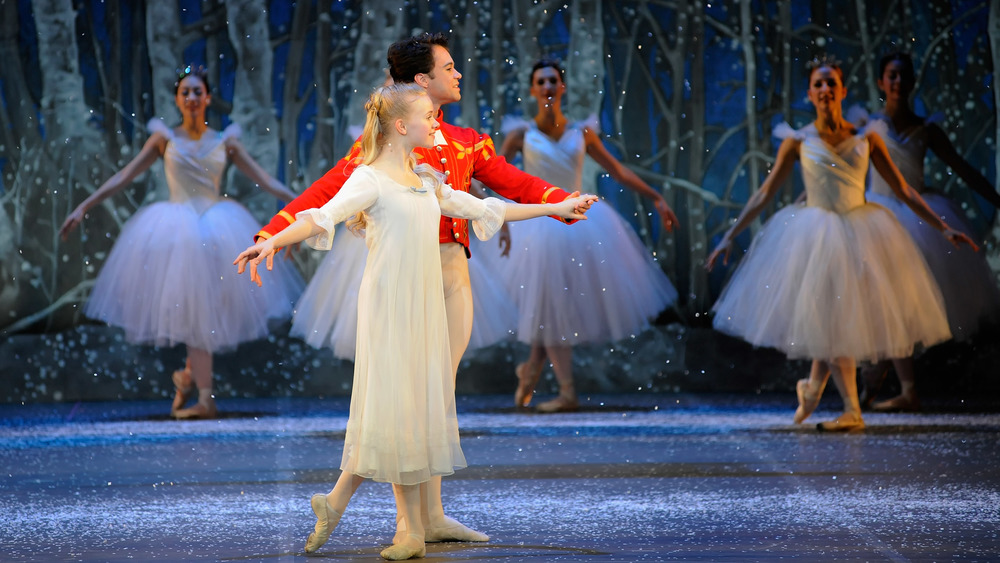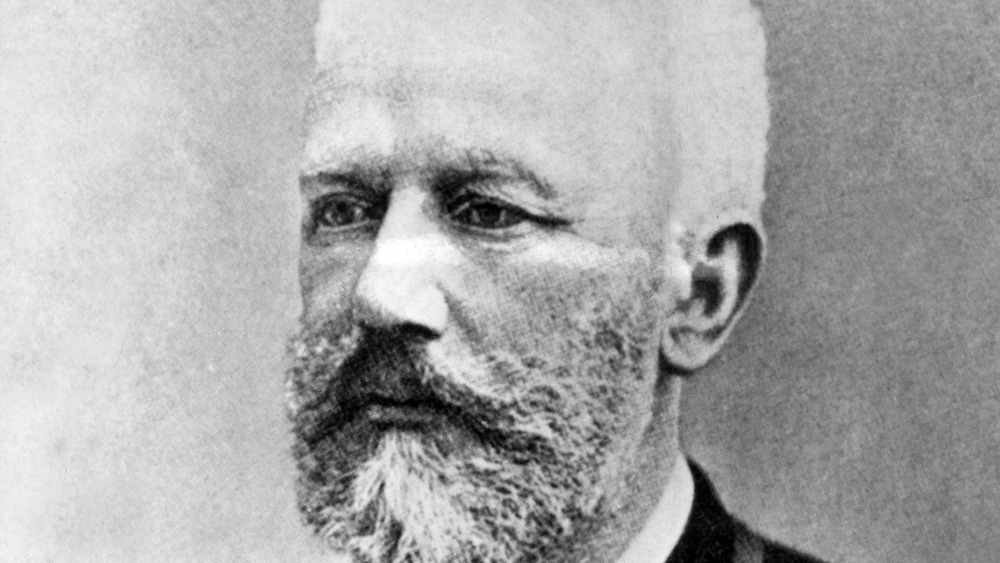The Tragic Story Of The Man Who Composed The Nutcracker
The Christmas season is never complete without a trip to see the ballet. For centuries, The Nutcracker has been on many families' holiday calendars, particularly if they have children who dance. Ballet students and dancers know it's finally time to feel the Christmas spirit when casting for The Nutcracker begins.
The ballet is full of fun and whimsy. The Nutcracker Prince and Clara (or Maria, or Masha, depending on which production you're watching) fight off the Rat King, travel through a blizzard, and end up in the Land of Sweets. But underneath all the fluff and lightness, the ballet's composer, Pyotr Ilyich Tchaikovsky didn't have such a fantastical life.
Tchaikovsky was born in Russia in 1840. His father was a metal worker, and his parents hoped that Tchaikovsky became a civil servant when he grew up. He showed early promise as a pianist, but there was little opportunity to succeed as a musician in Russia, explained Biography. He entered the School of Jurisprudence at 12 and put his passion for music on hold. Leaving his family at such an early age, though, was traumatic for the young Tchaikovsky. It got even worse when his mother died of cholera when he was 14. Classic FM noted he might have even suffered from chronic depression.
While Tchaikovsky worked as a civil servant, he eventually decided to enter a music school and began a career by teaching and critiquing composers. In time he would be especially celebrated for his compositions for ballets, including The Nutcracker in 1892.
His hidden life
Tchaikovsky also wrote the music for The Sleeping Beauty (1889) and Swan Lake (1876), and many others, plus the "1812 Overture." Throughout all this, he was funded by his long-time patron, Nadezhda von Meck.
Despite his popularity and breadth of work, Tchaikovsky did not have a happy personal life. Living in 1800s Russia meant he had to hold a part of himself back. Tchaikovsky, many historians agree, was gay. The Guardian reported Tchaikovsky wrote letters to his friends talking about men he loved and had sought relations with. The letters were censored for years; the Russian government at that time fearful of the public's reaction if they learned that one of the country's greatest composers was gay. Tchaikovsky's sexuality had been a great debate among his fans, critics, and historians.
In 1877, Tchaikovsky married a music student named Antonina Miliukova, perhaps in an attempt to hide his homosexuality. The marriage was a disaster from the beginning. He left his new wife after two months. Tchaikovsky almost suffered a nervous breakdown during the marriage, and had tried to commit suicide.
For the rest of his life, Tchaikovsky lived as a bachelor. He continued composing music and traveled extensively. Tchaikovsky died on November 6, 1893, of cholera from unboiled water in a restaurant, wrote Tchaikovsky Research, although there is also speculation that he committed suicide. It was clear that his death was unexpected. Tchaikovsky, who created one of the most beloved Christmas ballets ever, died a day after he premiered his Symphony No. 6. He was 53 years old.

